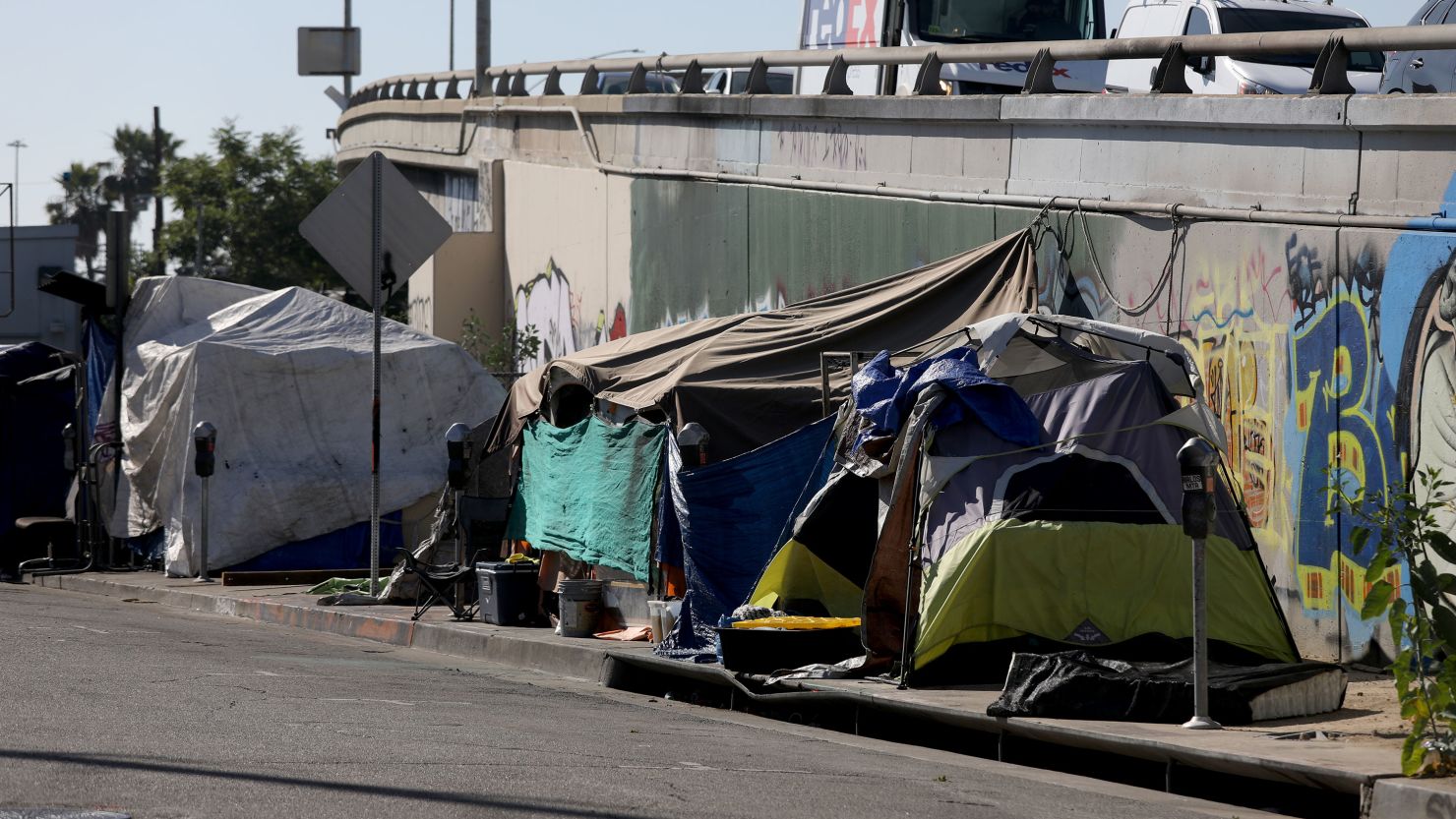As housing in the US has become increasingly unaffordable?over the past few years, the number of people experiencing homelessness surged to its highest level on record this year,?according to an annual survey taken in January.
The number of unhoused people in the United States jumped by 12% early this year from the year before, an increase of about 70,650 people, according to an annual report from the Department of Housing and Urban Development released on Friday.
Known as a “point-in-time” estimate, the annual snapshot looks at the number of individuals nationwide who are living in shelters, temporary housing and unsheltered settings on one night last January. The report found that more than 650,000 people were experiencing homelessness that night, the most since reporting began in 2007.
“Homelessness is solvable and should not exist in the United States,” said HUD Secretary Marcia Fudge in a statement. “We’ve made positive strides, but there is still more work to be done. This data underscores the urgent need for support for proven solutions and strategies that help people quickly exit homelessness and that prevent homelessness in the first place.”
Homelessness increased nationwide across all household types, the report found, but had an outsized impact on communities of color. While Black people make up about 13% of the US population, they comprise 37% of people experiencing homelessness and 50% of the people who are experiencing homelessness as a member of a family with children.
The Asian or Asian American population saw the biggest increase in the rate of homelessness between 2022 and 2023, with a 40% increase. About 3,313 more Asian and Asian American people were unhoused.
The biggest numerical growth in people experiencing homelessness was among Latinos. There were 28% more Latinos who were unhoused in 2023 than the year prior. This population made up 55% of the total increase in US homelessness, with 39,106 additional Latinos without housing this year.
The survey also found a sharp jump in the number of people who became homeless for the first time.
Between federal fiscal year 2021 and 2022, the number of people who became newly homeless increased by 25%, even as the number of people who exited homelessness to permanent housing increased by 8%, according to the HUD report.
This rise is the result of a combination of factors, according to HUD.
Rent has climbed significantly over the past few years. By November of this year, the national median asking rent in the US was beginning to come down some, but it is still 22% higher than it was in November 2019 before the pandemic housing boom, according to Redfin. And the median asking rent for all apartments was just 4% below the $2,054 record high hit in August 2022.
In addition, the HUD report found, in 2022 the winding down of pandemic protections and programs focused on preventing evictions may also have contributed to more people finding themselves homeless in the first month of 2023.
“We must address the main driver of homelessness and housing instability — the gap between low incomes and rent costs,” said Peggy Bailey, vice president for Housing and Income Security at the Center on Budget and Policy Priorities in a statement.
“We have learned a lot from approaches that have targeted specific populations and helped them exit homelessness,” she said. “Now we need to take those lessons and broaden them to ensure that anyone who needs help, gets it, period.”
In the nearly one year since the HUD count was conducted, the administration has taken several steps aimed at preventing homelessness and supporting the unhoused.
Through implementation of the Housing Supply Action Plan, more apartments are on track to be built this year than any year on record. This week, HUD announced that it has helped more than 424,000 households connect to homeless support services, exit homelessness, or avoid homelessness altogether in 2023. Earlier this month, the Veterans Administration announced that it has housed more than 38,000 homeless veterans.






